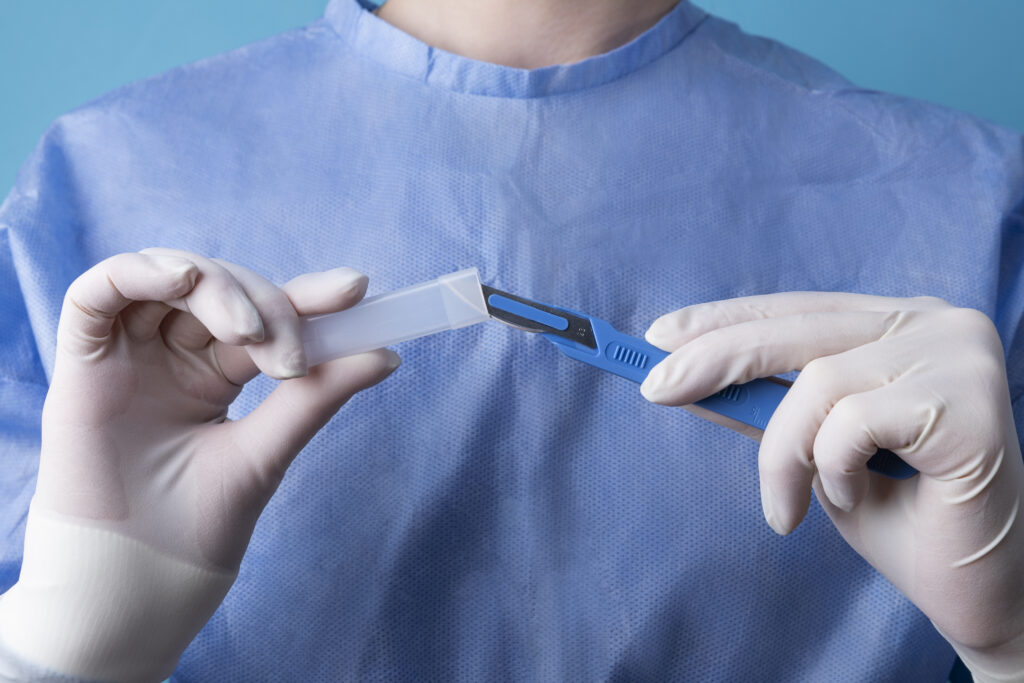Surgery can be stressful, but one of the most effective ways to calm down and achieve a better result is to be medically prepared. It is where pre-surgical clearance comes in. This is where a critical examination of your health is carried out before the surgery to determine whether it is safe for you to undergo the surgery and anesthesia. Here, we keep the explanation to a minimum, so if this is your first experience with medical internet surfing and reading, we want you to understand the basics of it all, which are tests, consultations, medical reviews, and what will happen in case you are not cleared. Regardless of whether it is a simple outpatient surgery or a major operation, learning what pre-surgical clearance comprises gives you the advantage to take charge of your health process.
Why Pre-Surgical Clearance Is Essential
Pre-surgical clearance is not any formality; it is an important component of safe surgery preparation. It preconditions your body to be prepared to cope with anesthesia and the physical stress of the operation. This clearance helps surgeons and the anesthesiologist to evade any unforeseen complications during or after surgery. In case of improper evaluation, conditions such as high blood pressure, diabetes, or heart disease can be overlooked and exacerbate risks.
Ensuring Safe Surgery and Minimizing Complications
The primary objective of a pre-surgical clearance in Las Vegas is to identify possible red flags in time, before surgery. The latter might even appear to be a heart condition, an abnormal blood test, or a lung issue without having symptoms, but greatly expose the patient to risks during the surgery. That is why it is necessary to screen even apparently healthy patients. Through early identification of the concerns, the medical team may be able to mitigate the risks posed as long as they make a move or act early and consider altering medications or delaying surgeries to address a condition before proceeding.
Preventing Surgical Delays and Readmissions
Any form of delay or cancellation is frustrating and expensive. An extensive presurgical clearance prevents last-minute shocks, which may result in rescheduling. Moreover, with a proper pre-evaluation of patients, the readmission rate tends to decrease as a result of avoidable complications such as infection, bleeding, or heart conditions. Hospitals monitor such statistics actively, which means that the clearance has a direct effect on safety and efficiency.
Who’s Involved in the Clearance Process
A pre-surgical clearance is a process that requires interactions among multiple medical workers. They all contribute differently towards guaranteeing that every outcome of your health is checked and attended to before the procedure. This is a patient-centered team-based approach that makes the process comprehensive.
Surgeon or Proceduralist Role
The process of pre-surgical clearance is commenced by your surgeon. Depending upon answers to your age, past medical history, and complexity of surgery, they decide what type of testing or consultations with specialists (if any) are required. Another form of communication between surgeons is the reviewing of all test results and the possibility of additional assessments in the case of possible attributes.
Anesthesiology Team Role
The anesthesiologist determines the possible responses of your body to anesthetics. They examine cardiovascular and respiratory systems, investigate allergies to medication, and evaluate airway risks. Based on such a review, they then either pass you or recommend a change in the surgical plan to make it safer.
Primary Care and Specialist Coordination
Your primary care provider or patients referred to him/her as specialists will be requested to grant you clearance in case you have a chronic situation such as diabetes, high blood pressure, or asthma etc. They can make adjustments or even recommend additional tests or assist in making your health the best it can be before performing surgery.
The Pre-Surgical Clearance Journey Step by Step
The Pre-op clearance is a logical process that seeks out risks and addresses them. As discussed in consultation for final clearance, the whole process is a way to create the entire image of your physical condition and surgical preparation.
Initial Consultation and Scheduling
It is the initial contact between you and the surgical team. The procedure, anesthesia plan, and what to expect are discussed by the surgeon. Depending on your health background and the type of procedure you receive, a schedule is drawn to ensure that the appropriate lab personnel, imaging, or specialists are visited in order to get the lab work done.
Medical History Evaluation
This section is vital. They will inquire about previous surgeries, medical diagnosis, allergies, and current medications, and lifestyle habits such as smoking or drinking. It is better to share even when you consider something not to be relevant. Full disclosure brings in a safer end.
Physical Examination and Vital Signs
A comprehensive physical examination involves listening to the heart and lungs, checking blood pressure, heart rate, temperature and oxygen levels. This can immediately point to criteria that require more testing, like, for example, high blood pressure and irregular heart sounds.
Laboratory Testing Explained
Lab tests form the core of pre-surgical clearance:
- CBC detects anemia or infections.
- Electrolytes reveal imbalances that could affect anesthesia.
- Kidney and liver function tests assess how your body processes medications.
- Coagulation panels check your blood’s ability to clot.
- Blood glucose levels are important for diabetic patients.
These tests help your team anticipate complications and modify treatment accordingly.
Imaging and Diagnostic Studies
Depending on the procedure and your health profile, you may be asked to undergo diagnostic imaging. Common examples include:
- Chest X-ray for smokers or those with lung issues
- Electrocardiogram (ECG) for cardiac evaluation
- Echocardiogram for heart structure and function
- Ultrasound or CT scans for specific conditions
These tests provide visual insights into organ health and help guide anesthesia decisions.
Specialized Health Assessments for Clearance
Some patients will need further assessment due to pre-medical issues or the presence of some test abnormalities. These are attended to by centers that are experts in terms of organ systems.
Cardiac Evaluation: ECG, Stress Test, Echo
The cardiologist can carry out advanced testing in case you experience chest pain or shortness of breath, or have had heart disease in the past. A stress test indicates the way your heart works under pressure, whereas an echocardiogram provides a detailed picture of the functioning of your heart.
Pulmonary Assessment: Lung Function Testing and Imaging
A lung test (spirometry) or a chest X-ray may be required in smokers or when the patient has COPD or asthma. These services are used to test the ability of your lungs to supply oxygen when you are placed under stress, e.g., during surgery.
Referrals to Other Specialists
Other specialists may be brought in for:
- Endocrinology – for uncontrolled diabetes
- Nephrology – for kidney disease
- Hematology – for clotting or bleeding disorders
Their evaluations are key for making surgery safe for patients with complex medical histories.
Assessing Risk: Who Needs Which Tests
The pre-surgical clearance is not universal. It will greatly depend on your medical history, age, and type of surgery. This part describes the issue of risk stratification, in which some patients require more comprehensive workups.
Impact of Age and General Health
Older individuals or people with immobility conditions have a higher risk of having conditions that increase surgical risk. They may therefore need cardiac or pulmonary clearance, additional lab tests, and extended observation before surgery.
Chronic Conditions and Lifestyle Factors
Individuals who are smokers, have diabetes, obesity, and high blood pressure might need customized tests. Such risk factors may have a serious influence on the way your body is going to accept anesthesia and recover after surgery.
Your Role in the Clearance Process
Although doctors have a huge role to play, your cooperation is crucial too. It all depends on you how open and proactive you can be; therefore, the quality of your pre-surgical clearance.
Honest Disclosure on Medical Questionnaires
Tell the truth concerning whatever health issue you have, even if it seems to you that it is not big. Symptoms concealing or omitting medicines may create life-threatening complications. It must be accurate.
Following Pre-Surgery Instructions Carefully
Depending on the surgery to be performed, the instructions can be on fasting, adjustment or discontinuance of some medicine or special hygiene precautions before operating. These should be followed to completion so that your pre surgical approval stands.
Proactive Lifestyle Changes
Preoperative measures (such as quitting smoking, gaining control of blood sugar levels or losing weight) can significantly increase your chances of a successful clearance and decrease your chances of complications.
Risks of Incomplete or Missing Clearance
Skipping or rushing the pre-surgical clearance process increases the chances of:
- Last-minute surgery cancellations
- Anesthesia complications
- Poor wound healing
- Infections or bleeding
- Longer hospital stays or readmission
Clearance is not optional—it’s a safety requirement.
Tips to Prepare for Pre-Surgical Clearance
Make the process smoother with these tips:
Gather Medical Records and Medication Lists
Be prepared to have an overview of all your drugs, supplements, and past surgeries. This aids your care personnel in assessing you correctly.
Coordinate Between Multiple Doctors
Ensure that every physician who attends to you knows about your pending operation. Exchange the records and request them to share the information with your surgeon to prevent unnecessary repetition of tests or loss of information.
Emotional Preparation and Support
It should also be mentally prepared. Ask questions, talk to the doctor about fears, and find a person who will escort and be with you on the surgery day and even after it. To schedule your appointment with the highest standard of care, visit Sahara West Urgent Care on our website, where you can also explore more informative blogs.
FAQs
What’s the timeline for clearance?
Usually completed 1–2 weeks before surgery, though some tests may be done 48–72 hours in advance.
Is fasting required before tests?
For certain blood tests or imaging, yes. Your provider will give specific instructions.
Can surgery be denied after clearance?
Yes, if new health issues arise or existing conditions worsen before the procedure.
Is clearance needed for outpatient surgeries?
Yes, even minor procedures often require





